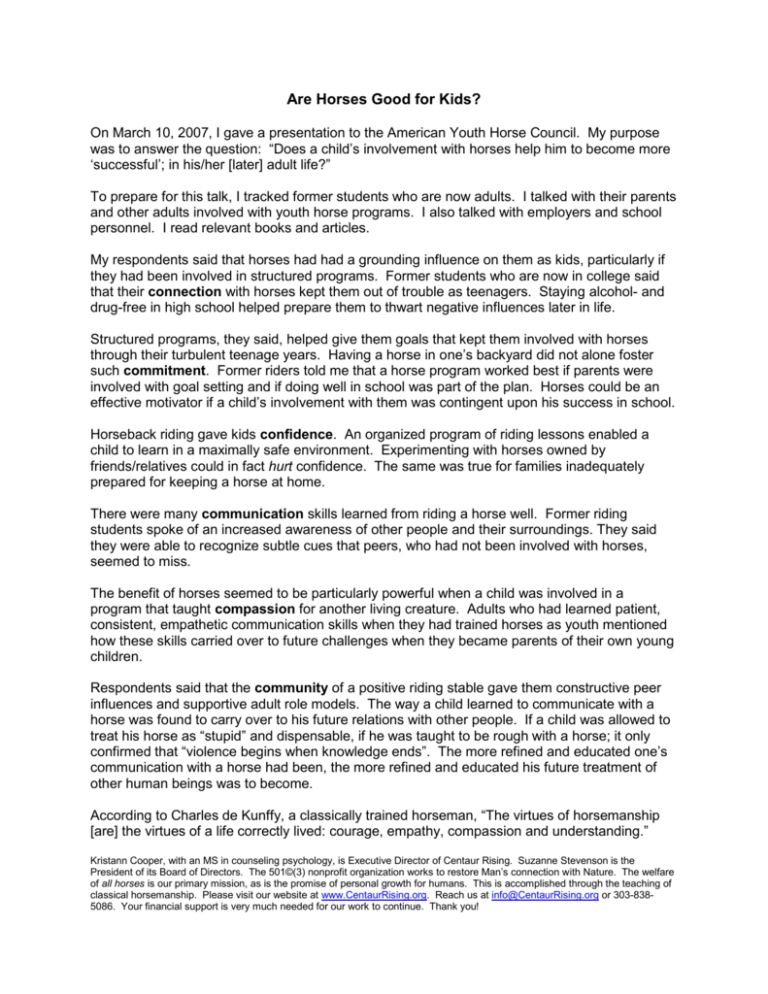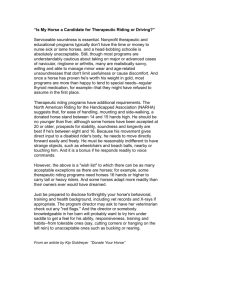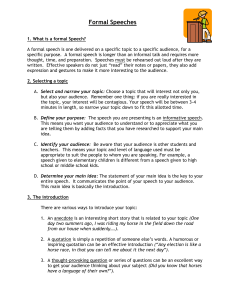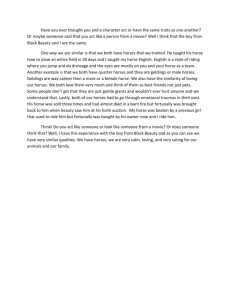Are Horses Good for Kids?
advertisement

Are Horses Good for Kids? On March 10, 2007, I gave a presentation to the American Youth Horse Council. My purpose was to answer the question: “Does a child’s involvement with horses help him to become more ‘successful’; in his/her [later] adult life?” To prepare for this talk, I tracked former students who are now adults. I talked with their parents and other adults involved with youth horse programs. I also talked with employers and school personnel. I read relevant books and articles. My respondents said that horses had had a grounding influence on them as kids, particularly if they had been involved in structured programs. Former students who are now in college said that their connection with horses kept them out of trouble as teenagers. Staying alcohol- and drug-free in high school helped prepare them to thwart negative influences later in life. Structured programs, they said, helped give them goals that kept them involved with horses through their turbulent teenage years. Having a horse in one’s backyard did not alone foster such commitment. Former riders told me that a horse program worked best if parents were involved with goal setting and if doing well in school was part of the plan. Horses could be an effective motivator if a child’s involvement with them was contingent upon his success in school. Horseback riding gave kids confidence. An organized program of riding lessons enabled a child to learn in a maximally safe environment. Experimenting with horses owned by friends/relatives could in fact hurt confidence. The same was true for families inadequately prepared for keeping a horse at home. There were many communication skills learned from riding a horse well. Former riding students spoke of an increased awareness of other people and their surroundings. They said they were able to recognize subtle cues that peers, who had not been involved with horses, seemed to miss. The benefit of horses seemed to be particularly powerful when a child was involved in a program that taught compassion for another living creature. Adults who had learned patient, consistent, empathetic communication skills when they had trained horses as youth mentioned how these skills carried over to future challenges when they became parents of their own young children. Respondents said that the community of a positive riding stable gave them constructive peer influences and supportive adult role models. The way a child learned to communicate with a horse was found to carry over to his future relations with other people. If a child was allowed to treat his horse as “stupid” and dispensable, if he was taught to be rough with a horse; it only confirmed that “violence begins when knowledge ends”. The more refined and educated one’s communication with a horse had been, the more refined and educated his future treatment of other human beings was to become. According to Charles de Kunffy, a classically trained horseman, “The virtues of horsemanship [are] the virtues of a life correctly lived: courage, empathy, compassion and understanding.” Kristann Cooper, with an MS in counseling psychology, is Executive Director of Centaur Rising. Suzanne Stevenson is the President of its Board of Directors. The 501©(3) nonprofit organization works to restore Man’s connection with Nature. The welfare of all horses is our primary mission, as is the promise of personal growth for humans. This is accomplished through the teaching of classical horsemanship. Please visit our website at www.CentaurRising.org. Reach us at info@CentaurRising.org or 303-8385086. Your financial support is very much needed for our work to continue. Thank you! 1/07







